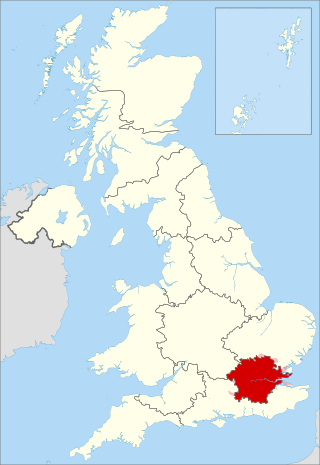Related Research Articles

London Weekend Television (LWT) was the ITV network franchise holder for Greater London and the Home Counties at weekends, broadcasting from Fridays at 5.15 pm to Monday mornings at 6:00. From 1968 until 1992, when LWT's weekday counterpart was Thames Television, there was an on-screen handover to LWT on Friday nights. From 1993 to 2002, when LWT's weekday counterpart was Carlton Television, the transfer usually occurred invisibly during a commercial break, for Carlton and LWT shared studio and transmission facilities.

ITV Yorkshire, previously known as Yorkshire Television and commonly referred to as just YTV, is the British television service provided by ITV Broadcasting Limited for the Yorkshire franchise area on the ITV network. Until 1974, this was primarily the historic county of Yorkshire and parts of neighbouring counties served by the Emley Moor transmitter. Following a reorganisation in 1974 the transmission area was extended to include Lincolnshire, northwestern Norfolk and parts of Derbyshire and Nottinghamshire, served by the Belmont transmitter.

The London Studios in Lambeth, Central London was a television studio complex owned by ITV plc and originally built for London Weekend Television. The studios were located in Central London, on the South Bank next to the IBM Building and the Royal National Theatre. The building was set on 2.5 acres of land and was 24 floors high. The London Studios closed on 30 April 2018. Many ITV programmes now come from Television Centre in White City, London.

ITV London is the on-air brand name used by ITV Broadcasting Limited for two broadcast franchises of ITV, Carlton Television (weekdays) and London Weekend Television (weekends) in the London ITV region. Its terrestrial digital signal is transmitted from Crystal Palace in South London.
Night Network, Night Time and Night Shift were names given to the overnight schedule of the ITV network in the United Kingdom. The first ITV company began 24-hour broadcasting in 1986, with all of the companies broadcasting through the night by the end of 1988. At first, individual companies created their own services, however before too long, many of the smaller ITV stations began simulcasting or networking services from others.

ITV News London is a British television news service broadcast on both ITV London, with live streaming on ITVX. It is produced by ITN.

Curry and Chips is a British television sitcom broadcast in 1969 which was produced by London Weekend Television for the ITV network.

Thames News was the flagship regional news programme of Thames Television, serving the Thames ITV region and broadcast on weekdays from 12 September 1977 to 31 December 1992.
Peter Lewis is a former British television continuity announcer. He was the first person to broadcast from London Weekend Television's new centre on the south bank of the River Thames, when it opened in 1971. He was promoted to senior announcer in 1977 and stayed in this role until 1997 when he left the station to pursue a management consultancy career in the United States.
The Six O'Clock Show was a regional television magazine show broadcast in the Greater London area and produced by London Weekend Television between 1982 and 1988.
LWT News was a regional news service provided by London Weekend Television, serving the Greater London area in various formats between January 1982 and 3 January 1993.
Kenith Trodd is a British television producer best known for his professional association with television playwright Dennis Potter.
A few months after the 1969 premiere of the children's television program Sesame Street in the U.S., talks began in the United Kingdom to broadcast the programme or develop a co-production on British television. The idea was controversial at the time; the BBC was opposed to it, and ITV was reluctant. Response from parents, educators, and television officials to the show was varied, ranging from distaste to acceptance. After much public debate, the BBC chose not to air Sesame Street for several reasons, including the show's educational methods, its creation for American audiences, and the UK's long history of quality educational television programmes for young children. ITV, after much research, including a report entitled Reactions to Sesame Street in Britain, 1971, chose to air Sesame Street on a limited basis. It then switched to Channel 4 in the 1980s and aired there until 2001, when it was pulled from its regular schedule, replaced by The Hoobs.
Gay Life is a documentary television programme broadcast by London Weekend Television (LWT) in 1980. It was produced by Michael Atwell at LWT's London Minorities Unit, and was the United Kingdom's first LGBT television series.
This is a timeline of the history of the former British broadcaster TVS. It provided the ITV service for the South and South East of England from 1982 to 1992.
This is a timeline of the history of the British broadcaster London Weekend Television. It has provided the ITV weekend service for London since 1968.
This is a timeline of the history of the British broadcaster Thames Television and its predecessor Associated-Rediffusion. Between them, they provided the ITV weekday service for London from 1955 to 1992, after which Thames continued as an independent production company until 2003.

Lyn Marshall, was a British yoga teacher, broadcaster, writer, model, ballerina, and actress. She was one of the first presenters of British yoga television programmes in the 1970s and 1980s, with Wake up with Yoga and Keep up with Yoga on ITV's London Weekend Television and Everyday Yoga on the BBC. She wrote books that accompanied each series.
This is a timeline of the history of regional news on the British television network ITV.
References
- ↑ Eric Croston, 'Minority Television in Action', Television and Radio 1983, December 1982. Republished by transdiffusion.org, 21 May 2018. Accessed 24 July 2020.
- ↑ Satinder Chohan (2013). "Black television". In Peter Childs; Michael Storry (eds.). Encyclopedia of Contemporary British Culture. Routledge. p. 64. ISBN 978-1-134-75555-4.